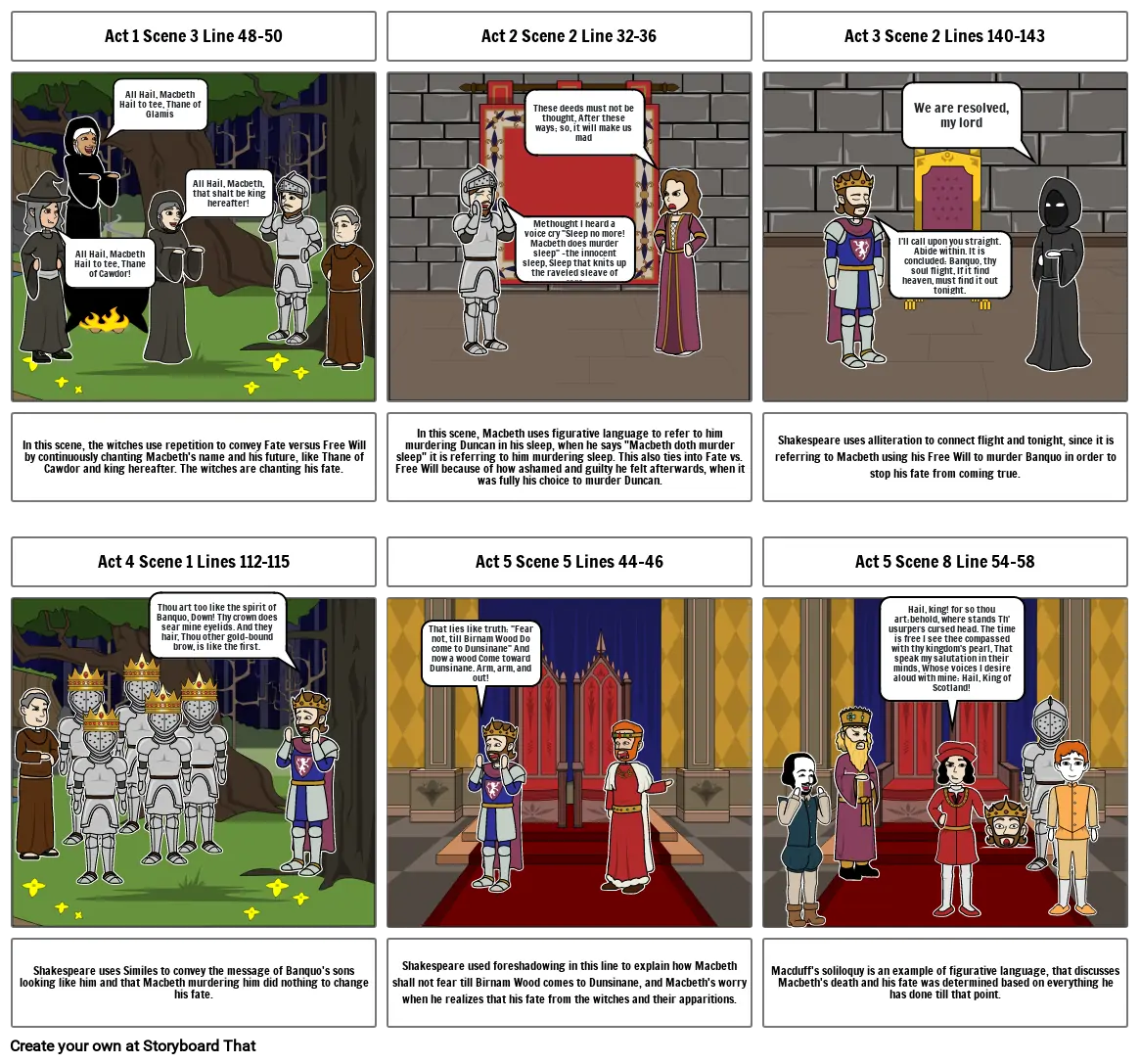Unknown Story

Süžeeskeem Tekst
- Act 1 Scene 3 Line 48-50
- All Hail, Macbeth Hail to tee, Thane of Cawdor!
- All Hail, Macbeth Hail to tee, Thane of Glamis
- All Hail, Macbeth, that shalt be king hereafter!
- Act 2 Scene 2 Line 32-36
- Methought I heard a voice cry "Sleep no more! Macbeth does murder sleep" -the innocent sleep, Sleep that knits up the raveled sleave of care
- These deeds must not be thought, After these ways; so, it will make us mad
- Act 3 Scene 2 Lines 140-143
- I'll call upon you straight. Abide within. It is concluded: Banquo, thy soul flight, If it find heaven, must find it out tonight.
- We are resolved, my lord
- In this scene, the witches use repetition to convey Fate versus Free Will by continuously chanting Macbeth's name and his future, like Thane of Cawdor and king hereafter. The witches are chanting his fate.
- Act 4 Scene 1 Lines 112-115
- Thou art too like the spirit of Banquo, Down! Thy crown does sear mine eyelids. And they hair, Thou other gold-bound brow, is like the first.
- In this scene, Macbeth uses figurative language to refer to him murdering Duncan in his sleep, when he says "Macbeth doth murder sleep" it is referring to him murdering sleep. This also ties into Fate vs. Free Will because of how ashamed and guilty he felt afterwards, when it was fully his choice to murder Duncan.
- Act 5 Scene 5 Lines 44-46
- That lies like truth: "Fear not, till Birnam Wood Do come to Dunsinane" And now a wood Come toward Dunsinane. Arm, arm, and out!
- Shakespeare uses alliteration to connect flight and tonight, since it is referring to Macbeth using his Free Will to murder Banquo in order to stop his fate from coming true.
- Act 5 Scene 8 Line 54-58
- Hail, king! for so thou art:behold, where stands Th' usurpers cursed head. The time is free I see thee compassed with thy kingdom's pearl, That speak my salutation in their minds, Whose voices I desire aloud with mine: Hail, King of Scotland!
-
Loodud üle 30 miljoni süžeeskeemi

